Spain, a country rich in culture, history, and vibrant traditions, has inspired some of the most profound and timeless quotes. From the wisdom of Spanish philosophers and poets to the passionate words of famous artists and writers, these quotes capture the essence of Spain's spirit. Whether reflecting on love, life, or the beauty of the Spanish landscape, these words resonate across generations and borders.
In this blog, we will explore the 30 best Spanish quotes, delving into the deeper meanings behind each one. These quotes not only offer insight into the Spanish way of life but also provide universal wisdom that can inspire and uplift. Whether you're a lover of Spanish culture or simply seeking inspiration, these quotes are sure to leave a lasting impression.
| Author | Quote | Translation |
|---|---|---|
| Miguel de Cervantes | La pluma es la lengua del alma. | The quill is the tongue of the soul. |
| Salvador Dali | El que quiere interesar a los demás tiene que provocarlos. | He who wants to interest others must provoke them. |
| Pablo Picasso | Todos los niños nacen artistas. El problema es cómo seguir siendo artistas al crecer. | Every child is born an artist. The problem lies in how to remain an artist as you grow up. |
| Pedro Almodóvar | Una es más auténtica, mientras más se parece a los que soñó de sí misma. | A woman is at her most authentic when she resembles the image she has dreamt of herself. |
| Pablo Neruda | Soy el desesperado, la palabra sin ecos, el que los perdió todo, y el que todo lo tuvo. | I'm the desperate one, the word without echo, the one who lost everything, the one who had it all too. |
| Octavio Paz | Aprender a dudar es aprender a pensar. | Learning to doubt is learning to think. |
| Isabel Allende | memoria selectiva para recordar lo bueno, prudencia lógica para no arruinar el presente, y optimismo desafiante para encarar el futuro. | A selective memory to remember only the good, logical prudence not to ruin the present, and an exacerbated optimism to face the future. |
| Frida Kahlo | ¿Se pueden inventar verbos? Quiero decirte uno: Yo te cielo, así mis alas se extienden enormes para amarte sin medida. | Is it possible to invent verbs? I wanted to tell you one: i sky you, that's how far my enormous wings reach in order to love you boundlessly. |
| Ernest Hemingway | Se necesitan dos años para aprender a hablar y sesenta para aprender a callar. | It takes two years to learn how to talk and seventy to learn how to hush up. |
| Che Guevara | Seamos realistas y hagamos lo imposible. | Let's be realistic and accomplish the impossible. |
| Antonio Machado | Caminante, no hay camino, se hace camino al andar. | Traveler, there is no path; the path is made by walking. |
| Migues de Cervantes | El que lee mucho y anda mucho, ve mucho y sabe mucho. | He who reads much and travels much, sees much and knows much. |
| Pedro Calderón de la Barca | La vida es sueño, y los sueños, sueños son. | Life is a dream, and dreams are only dreams. |
| Miguel de Cervantes | En un lugar de la Mancha, de cuyo nombre no quiero acordarme. | In a village of La Mancha, the name of which I have no desire to call to mind... |
| Popular Saying | Más vale prevenir que curar. | It is better to prevent than to cure. |
| Popular Saying | A buen hambre no hay pan duro. | To a good hunger, there is no hard bread. |
| Popular Saying | Del dicho al hecho hay un buen trecho. | From saying to doing, there's a long stretch. |
| Popular Saying | No hay mal que por bien no venga. | There is no bad from which good doesn't come. |
| Popular Saying | Ojos que no ven, corazón que no siente. | What the eyes don't see, the heart doesn't feel. |
| Popular Saying | El hábito no hace al monje. | The habit doesn't make the monk. |
| Popular Saying | Dime con quién andas y te diré quién eres. | Tell me who you walk with, and I'll tell you who you are. |
| Popular Saying | Donde hay amor, hay dolor. | Where there is love, there is pain. |
| The Bible (Luke 4:24) | Nadie es profeta en su tierra. | No one is a prophet in their own land. |
| Popular Saying | El sabio no dice lo que sabe, y el necio no sabe lo que dice. | The wise man doesn't say what he knows, and the fool doesn't know what he says. |
| Baltasar Gracián | Lo bueno, si breve, dos veces bueno. | What's good, if brief, is twice as good. |
| Popular Saying | Cuando el río suena, agua lleva. | Where's there's smoke, there's fire. |
| Frida Kahlo | Donde no puedas amar, no te demores. | Where you cannot love, do not prolong your stay. |
| Popular Saying | Haz bien y no mires a quién. | Do good, and don't look at whom. |
| Miguel de Unamuno | La envidia es mil veces más terrible que el hambre. | Envy is a thousand times more terrible than hunger. |
| Manuel Azaña | La libertad no hace felices a los hombres, los hace, sencillamente, hombres. | Freedom doesn't make men happy; it simply makes them men. |
Check here to know more Spanish tutoring on Superprof.

"La pluma es la lengua del alma" - Miguel de Cervantes
This quote, taken from The Ingenious Nobleman Mister Quixote of La Mancha, makes complete sense when written by Cervantes' quill, as the English translation is "The quill is the tongue of the soul."

We do not call Spanish the language of Cervantes for nothing. Miguel de Cervantes is the most famous Spanish writer abroad, but also the most widely read writer in Spain.
His most famous work was published in 1605: Don Quixote was an instant success, a must-read of Spanish literature.
Don Quixote ranks 4th in the best-selling individual books of all time.
It is generally said that Cervantes is the inventor of the modern novel in Europe: a first that would have long lasting consequences as the centuries went on!
There are many mise en abyme, quotations, proverbs and adages in Don Quixote, mainly through the character of Sancho Panza who, mounted on his donkey, embodies popular "wisdom."
If you are learning Spanish, take a look at Cervantes's personal history and you will discover a very rich life. A major figure of the Spanish Golden Age, Cervantes was a novelist, a poet, and playwright, but his story does not stop there.
After spending over five years in slavery after being captured by the Barbarians in Algiers, he wrote his major works such as the famous Don Quixote, recognized as the first modern novel. This work is obviously part of the history of the Spanish language.
This is a classic very often studied in Spanish classes. It's amazing!
Did you know you can take online Spanish classes on Superprof?
"El que quiere interesar a los demás tiene que provocarlos" - Salvador Dali
Translated to "He who wants to interest others must provoke them", this quote reveals the personality and life of Dali.
Born in 1904 in Figueras, this painter, sculptor, engraver, scriptwriter, and writer is one of the emblematic figures of surrealism.
He is also one of the most famous painters of the 20th century. He studied at the Beaux-Arts in Madrid, at the San Fernando Institute, a school from which he was kicked out of. He then arrived in Paris where he met artists who would change his life such as Picasso, André Breton, and Paul Éluard, whose wife, Gala, would become the companion and muse of Dali. This lead him to join the nascent group of Surrealists.
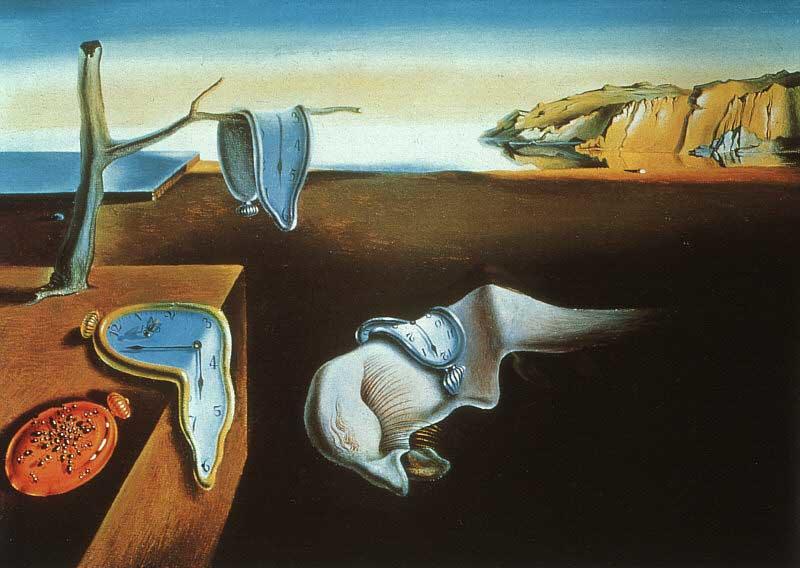
A provocative, irreverent and eccentric character, Dali marked the artistic landscape with his genius and work. His most famous paintings include:
The Persistence of Memory
Galatea to the Spheres
The Metamorphosis of Narcissus
By the way, have a look at the main differences between Spanish and Catalan.
"Todos los niños nacen artistas. El problema es cómo seguir siendo artistas al crecer" - Pablo Picasso
In English, we say "Every child is born an artist. The problem lies in how to remain an artist as you grow up."
The founder of Cubism, you can say that Pablo Picasso followed his own saying and figured out how to remain an artist his whole life. Everyone knows at least one work of Picasso's: Guernica. This painting, which symbolizes the horror of war, is one of the most famous works in the world.

Guernica was painted following the bombing of the city during the Spanish Civil War. The work was exhibited in 1937 as part of the International Exhibition in Paris. To speak just of this painting is reductive for Picasso, a prolific artist who has painted more than 1,800 works during his lifetime, including countless portraits. Not to mention sculptures and other genres. So immerse yourself in his work!
There is an anecdote which says that a German visitor contemplating Guernica said to Picasso, who was present: "Did you do this?" Upon which the painter replied: "No, you did!"
"Una es más auténtica, mientras más se parece a lo que soñó de sí misma" - Pedro Almodovar
This quote by Pedro Almodovar translates to, "A woman is at her most authentic when she resembles the image she has dreamt of herself."

An emblematic filmmaker of the new Spanish wave, a decadent artist, Pedro Almodóvar is an international director whose films always bring a dose of surprise.
Anti-conformism, exaggeration, transgression, sophistication, Almodóvar's films are unparalleled and often put women in the limelight.
Some of his unforgettable films, that you should definitely watch include:
- Tacones lejanos
- Todo sobre mi madre
- Mujeres al borde de un ataque de nervios
- Hable con ella
- Volver
Feel free to watch the director's films, which will help with your Spanish accent in addition to your Spanish classes.
"Soy el desesperado, la palabra sin ecos, el que lo perdió todo, y el que todo lo tuvo" - Pablo Neruda
"I'm the desperate one, the word without echo, the one who lost everything, the one who had it all too."
A writer and great Chilean poet, Pablo Neruda wrote these verses from the collection Twenty Poems of Love and a Desperate Song. Published in 1924 when the young author was only 19 years old, it is one of his major works.
Neruda was also a consul and politician very committed to the extreme left. As a member of the World Peace Council, in 1953 he received the Stalin Prize for Peace (sic).
He and Matilde Urrutia, his third wife (yes, yes!), met in 1953. She was the greatest love of his life. She inspired his most beautiful poems, including the 100 sonnets in the book 100 Love Sonnets.

Whether they reflect on sadness or happiness, a message of love and tenderness, there are as many beautiful Neruda texts as there are inspirational quotes. To consume without moderation if you are looking for beautiful words of love, according to Paulo Coehlo.
"Aprender a dudar es aprender a pensar" - Octavio Paz
"Learning to doubt is learning to think", comes from Octavio Paz--poet, essayist, diplomat, and Nobel Prize Literature Winner. The artist's work is imbued with multiple influences. At the crossroads of the world, his poems mix styles and inspirations.

He was in the Iberian Peninsula at the time of the Spanish Civil War, and he took the side of the Republicans in the name of "anti-fascism." He only broke with communism after the end of the German-Soviet pact, so that at the end of his life he took defense of Solzhenitsyn and criticized the Marxist governments of Cuba and Nicaragua.
Octavio Paz was inspired by his origins, his discoveries, but also on the history of the world and its various literary currents. With a life spent between Mexico, the United States, Spain, France, India, etc., his work reflected his openness to the world.
Aprender a sonreír es aprender a ser libre. Learning to smile is learning to be free.
Octavio Paz
Have a look at this article if you would like to learn how to speak Spanish or Portuguese.
"Memoria selectiva para recordar lo bueno, prudencia lógica para no arruinar el presente, y optimismo desafiante para encarar el futuro" - Isabel Allende
Isabel Allende is a globally renowned Chilean author and a key figure in Latin American literature. Her works reflect the complex history and struggles of her continent. As she herself puts it: "In my books, I wanted to tell the tragedy of this tortured continent and the hopes of women and men who fight for a better world."
However, even the best intentions can be fraught with challenges.
One of her famous quotes, when translated, captures her resilient outlook: "A selective memory to remember only the good, logical prudence not to ruin the present, and an exacerbated optimism to face the future."
Allende's background is deeply intertwined with the turbulent history of Chile. She is the niece of Salvador Allende, the socialist president whose government was overthrown in a violent coup. This tragic period, which included the suicide of her father, profoundly shaped her worldview.
"¿Se pueden inventar verbos? Quiero decirte uno: Yo te cielo, así mis alas se extienden enormes para amarte sin medida" - Frida Kahlo
These words, mearning "Is it possible to invent verbs? I wanted to tell you one: I sky you, that's how far my enormous wings reach in order to love you boundlessly" are said by the famous Mexican painter, Frida Kahlo.
Born in 1907, Frida Kahlo expresses herself strongly in her works. She was a real activist for the emancipation of women, which began to be popular around that time, and her life was not short on personal tragedies.
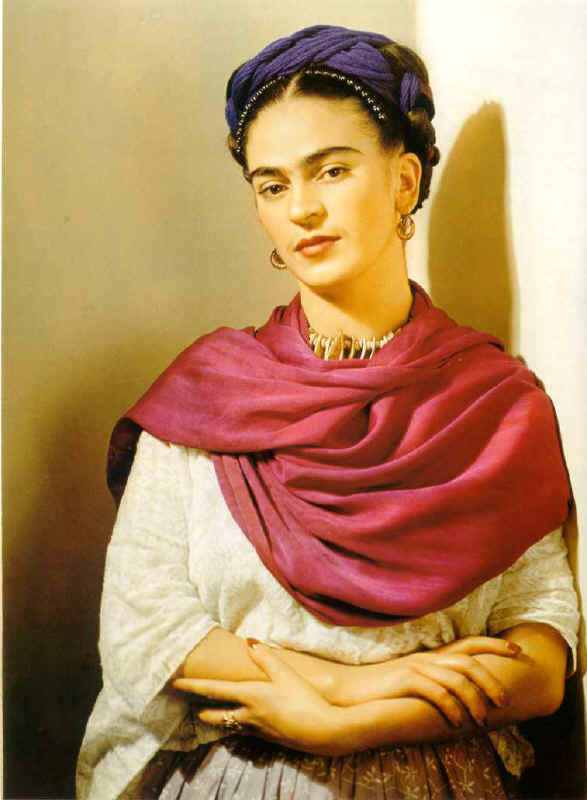
Afflicted with child poliomyelitis, it was following a serious bus accident that immobilized her several months that she began to paint at 18 years. In bed, she used a mirror to make self-portraits. Throughout her life, she would have more problems with her body.
She drew her incredible mental strength from her physical pain, which is reflected in all her work, where there is something to nourish our compassion.
There is no doubt that such an experience would have had an unimaginable impact on any love affair and on her perception of the theme of love and friendship, despite her life together with another artist, Diego Rivera.
"Life is beautiful" is one of those popular sentences Frida Kahlo never uttered, as her human life was marked by despair, sickness, and depression. Her state of mind was marked by the loss of children during pregnancy and her lack of faith in material things.
She chose the impossible love of the Revolution, and her stays in the United States and Paris only exacerbated her sadness, which became worse than the absence of remorse in Jean-Jacques Rousseau.
"Se necesitan dos años para aprender a hablar y sesenta para aprender a callar" - Ernest Hemingway
In English, this quote translates to "It takes two years to learn how to talk and seventy to learn how to hush up."

Ernest Hemingway is an American, it's true, but he still has his place in the top 10 Spanish quotes. This winner of the Nobel Prize for literature, a man who greatly influenced the novel in the twentieth century, was very closely linked to Spain for some time.
As a journalist, he covered the Spanish Civil War alongside Republicans. What he experienced and saw during these years in Spain is at the origin of one of his most famous novels: For Whom the Bell Tolls.
He always kept a great love for Spanish culture, and especially for the bull races (or corridas) which were then quite different from those of today (no comparison for the horses of the picadors).
"Seamos realistas y hagamos lo imposible" - Che Guevara
"Let's be realistic and accomplish the impossible."
This well-known quote from the Cuban revolutionary has gone around the world.
A well-known legend, Ernesto Rafael Che Guevara remains today one of the symbols for the struggle for freedom around the world. A communist figure of the revolution, he sought to extend the Revolution to Bolivia, but also Africa.
It would be difficult to find Guevara quotes that resemble love messages, because he was not--contrary to what one might believe--a tender guy.
Che owes much of his legendary status to his relatively early death (39 years old), unlike the co-revolutionaries who survived him (Castro, Stalin ...).
"Caminante, no hay camino, se hace camino al andar." - Antonio Machado
This is a line from Antonio Machado's poem Proverbios y cantares. It speaks to the nature of life as a journey. Rather than a predetermined route, we can create meaning and direction through our choices and actions. A powerful metaphor.
English Translation
“Traveler, there is no path; the path is made by walking.”
Spanish sayings are packed with everyday vocabulary, rhythm, and cultural insight. Learning them is both fun and practical.
“El que lee mucho y anda mucho, ve mucho y sabe mucho.” – Miguel de Cervantes
Miguel de Cervantes is the famed author of Don Quijote. This quote is a perfect example of what we call today "book smarts" and "street smarts."
It suggests that learning occurs through study and experience and that we should be curious, observant, and open to learning from diverse sources. In English, the quote translates to, "He who reads much and travels much, sees much and knows much."

“La vida es sueño, y los sueños, sueños son.” – Pedro Calderón de la Barca
"Life is a dream, and dreams are only dreams."This is from La vida es sueño, one of the most famous plays from Spain's Golden Age. This is a reflection on the nature of existence, which blends themes of reality, illusion, and destiny.
The meaning of this expression is still resonant today. Life is fleeting and unpredictable, so value each moment while also being inquisitive.
“En un lugar de la Mancha, de cuyo nombre no quiero acordarme...” – Miguel de Cervantes
Another famous quote from Miguel de Cervantes, translated in English to "In a village of La Mancha, the name of which I have no desire to call to mind...". This is one of the most famous quotes, especially for those who've read Spanish literature or translations of it.
This is the opening line from Don Quijote de la Mancha, and it's regularly quoted when discussing literature, language learning, and cultural heritage. This line sets the tone for Cervantes' masterpiece, which is a blend of wit, mystery, and storytelling.

“Más vale prevenir que curar.” – Popular Saying
This is a common Spanish proverb, and it's used in Spain and around the Spanish-speaking world.
This is the Spanish equivalent to “better safe than sorry” or directly“, prevention is better than cure”, translating to "it's better to prevent than to cure" in English. Whether it's health, finance, or relationships, this expression is about being proactive rather than reactive.
“A buen hambre no hay pan duro.” – Popular Saying
This is another Spanish proverb or saying, translating to "to a good hunger, there is no hard bread." It means that even bad or uncomfortable things can be good, acceptable, or useful in the right situation.
There isn't a good English equivalent, but it's similar to "Beggars can't be choosers", but this common saying across Spain and Latin America is certainly more pragmatic and less judgmental.
“Del dicho al hecho hay un buen trecho.” – Popular Saying
This Spanish proverb is great because, like many Spanish proverbs, it rhymes. It is like the English expression "Easier said than done", translating to "From saying to doing, there's a long stretch" and highlights the gap between words and actions.
It's an excellent example of the Spanish language's rhythm and style, with something meaningful and memorable.
“No hay mal que por bien no venga.” – Popular Saying
Translating to "There is no bad from which good doesn't come", this is a classic Spanish saying about being optimistic in adversity. You can say it when something unfortunate happens to express the hope that there'll be something good out of it.
Like the English "Every cloud has a silver lining", it's a good expression to learn for your vocabulary.

“Ojos que no ven, corazón que no siente.” – Popular Saying
In English, we say, "Ignorance is bliss", but this quotes directly translates to "what the eyes don't see, the heart doesn't feel". The Spanish language has a similar saying commonly used in Spain and Latin America, particularly in matters of love. However, unlike the English expression, this one is far more closely used for talking about romance and relationships.
While English says “Ignorance is bliss,” Spanish leans romantic with “What the eyes don’t see, the heart doesn’t feel.” Similar, yet different!
Though heartbreak isn't unique to Spanish, you'll see a lot of similar ideas in neighboring languages, particularly Portuguese, which shares a lot of vocabulary with Spanish, but is a completely different language.
“El hábito no hace al monje.” – Popular Saying
Don't judge a book by its cover in any language. The Spanish equivalent of this expression uses the visual metaphor of a monk and their “habit”, the traditional clothing worn by monks and nuns.
English Translation
“The habit doesn’t make the monk.”
“Dime con quién andas y te diré quién eres.” – Popular Saying
This Spanish saying is about the company you keep. It means "tell me who you walk with, and I'll tell you who you are." You could compare it to “Birds of a feather flock together” or simply “A man is judged by the company he keeps”. That said, it's much more poetic in Spanish.
“Donde hay amor, hay dolor.” – Popular Saying
If you thought the Spanish language was romantic, this one is about the idea that “Love hurts”.
This is a simple phrase and a great one for Spanish language learners. Expressions can be complicated, but this is a beautifully simple one.
English Translation
“Where there is love, there is pain.”
“Nadie es profeta en su tierra.” – The Bible (Luke 4:24)
This isn't a Spanish proverb but rather a quote from the Bible (Luke 4:24). However, it's one that, like many Bible quotes in English, has made its way into everyday use. This quote translates to "no one is a prophet in their own land" in English.
It's the idea that people's talents or achievements are unrecognized by those closest to them.
Remember that Spanish is the language, and while language and culture are closely related, not everybody in Spain speaks the same language. For example, Spanish and Catalan are two different languages and not just dialects of the same language, as we've heard some people believe.
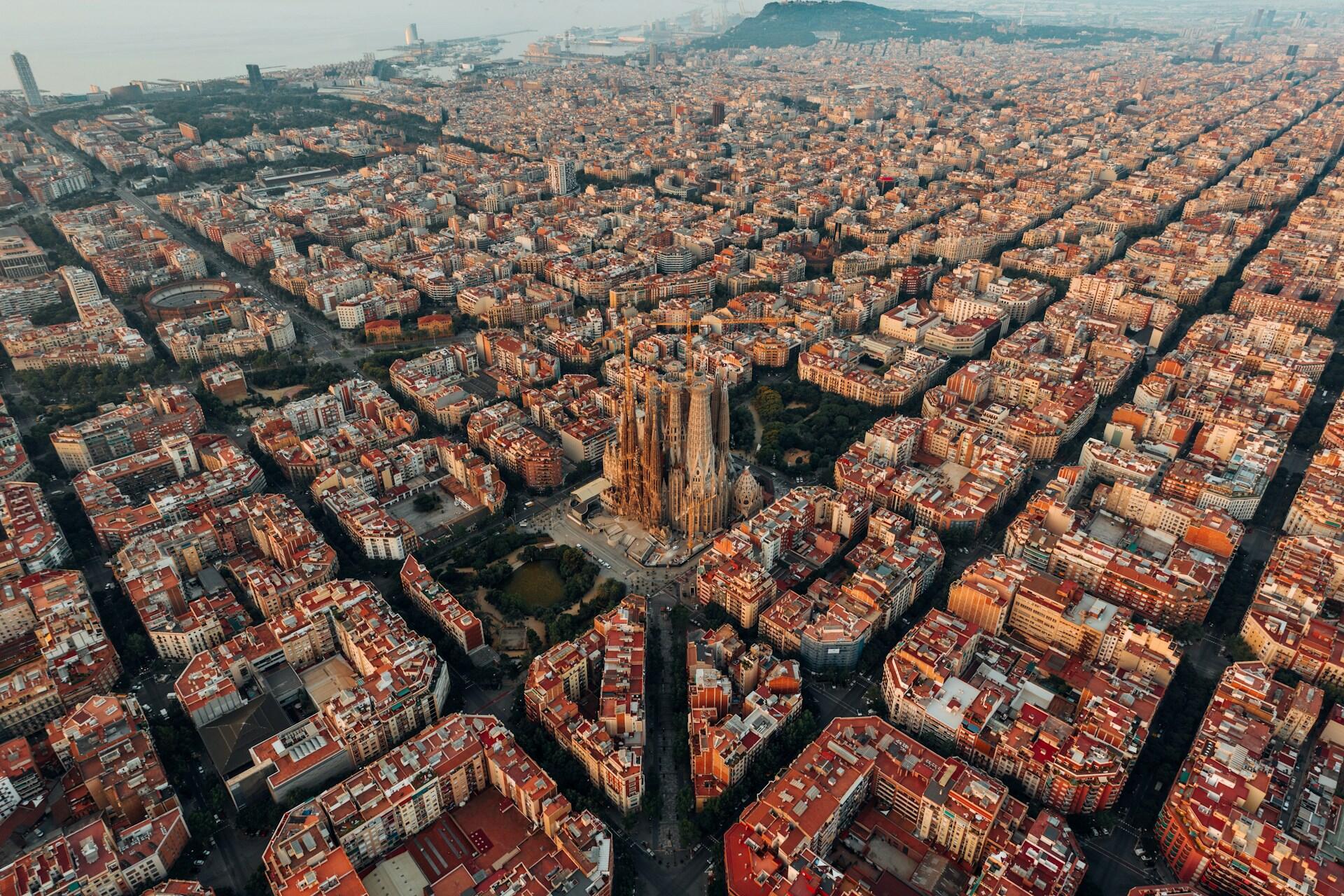
“El sabio no dice lo que sabe, y el necio no sabe lo que dice.” – Popular Saying
If the pen is the tongue of the soul, whoever came up with this one had a very sharp pen. This Spanish proverb implies wise people are more reserved, while fools are loud.
It's a wonderful phrase to mull over and a reflective expression in Spanish. It likely originated or evolved from the Bible verse, "Even a fool is thought wise if he keeps silent, and discerning if he holds his tongue", but it directly translates to "the wise man doesn't say what he knows, and the fool doesn't know what he says."
native speakers.
“Lo bueno, si breve, dos veces bueno.” – Baltasar Gracián
This is a Spanish quote from the 17th-century writer and philosopher Baltasar Gracián. It's like our expression "less is more", and for language learners, it's a good reminder that even short sentences can carry a lot of meaning.
English Translation
“What’s good, if brief, is twice as good.”
Spanish literature uses a lot of meaningful statements. If you read some older words, you can even see how Spanish has changed over time.
“Cuando el río suena, agua lleva.” – Popular Saying
In English, we might say, "Where there's smoke, there's fire", to indicate (sometimes wrongly) that there's never gossip or rumours that don't have some truth behind them.
This one, like the English equivalent, is fairly visual and a nice way to jazz up your Spanish.
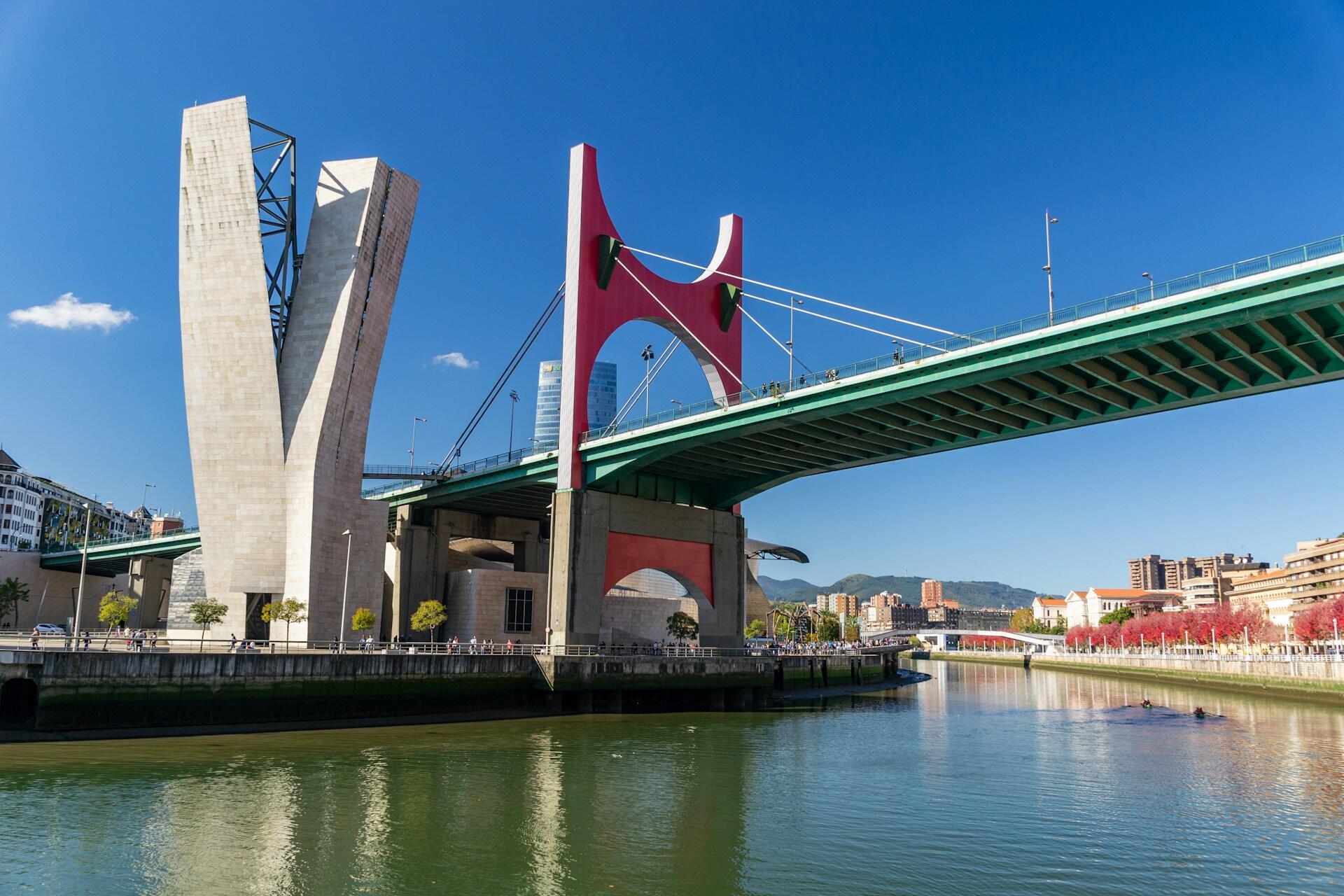
"Donde no puedas amar, no te demores." - Frida Kahlo
Another Frida Kahlo quote that means "Where you cannot love, do not prolong your stay" in English. This quote speaks to the importance of self-respect and encourages us to walk away from spaces or people where love cannot flourish. It's a great reminder that staying in unsupportive environments can drain us, and that choosing to leave is an act of strength, not failure.
“Haz bien y no mires a quién.” – Popular Saying
This Spanish proverb is about being kind and not thinking too much about it and the quotes translates to "Do good, and don't look at whom." You should do good for others just because.
For language learners, it's a good example of how culture and language are fairly inseparable, especially once you meet lovely people in Spanish-speaking communities and begin to understand why they have such expressions.
Proverbs tend to reflect the people who speak a given language and many of these quotes and proverbs are a gateway into the relationship between the Spanish language and culture.
“La envidia es mil veces más terrible que el hambre.” – Miguel de Unamuno
This is a Spanish-language quote from the philosopher and writer Miguel de Unamuno. It's about envy and its destructive nature, comparing it to hunger. In English, we would say "envy is a thousand times more terrible than hunger."
“La libertad no hace felices a los hombres, los hace, sencillamente, hombres.” – Manuel Azaña
This Spanish quote is from the intellectual and politician Manuel Azaña. It's an excellent quote for anyone learning Spanish about the inalienable nature of freedom and is a fantastically reflective quote. It translates to "freedom doesn't make men happy; it simply makes them men."
When you learn Spanish, not only can you learn the language in-depth, but you can also explore the cultural richness behind famous Spanish quotes.
Whether you want to grasp the nuances of idiomatic expressions or delve into the wisdom of great Spanish thinkers, Superprof offers personalized lessons that cater to your unique learning style. With expert tutors to guide you, you’ll be able to appreciate and use these top 10 Spanish quotes in no time, enhancing both your language skills and cultural understanding.
Summarize with AI:

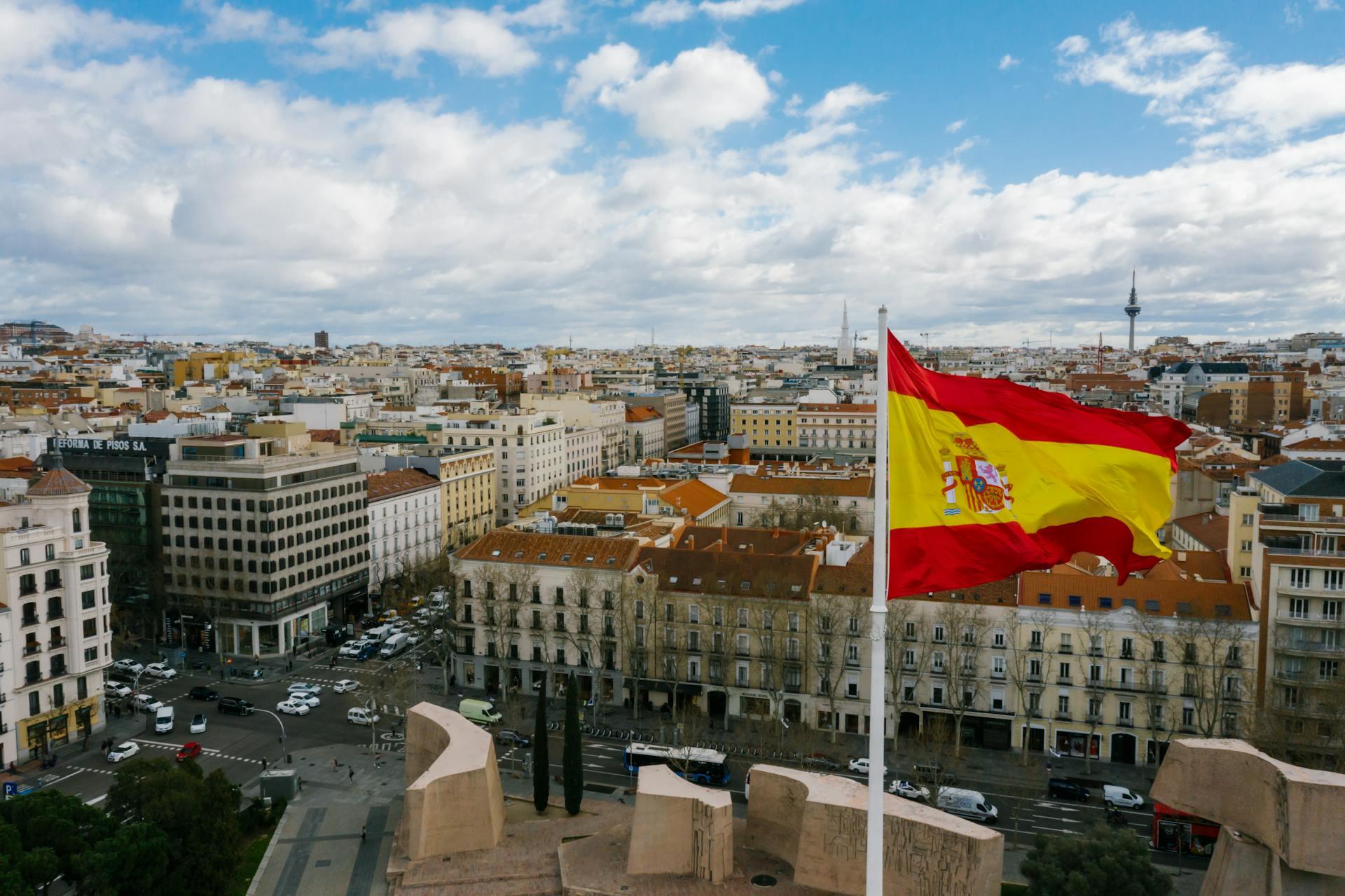













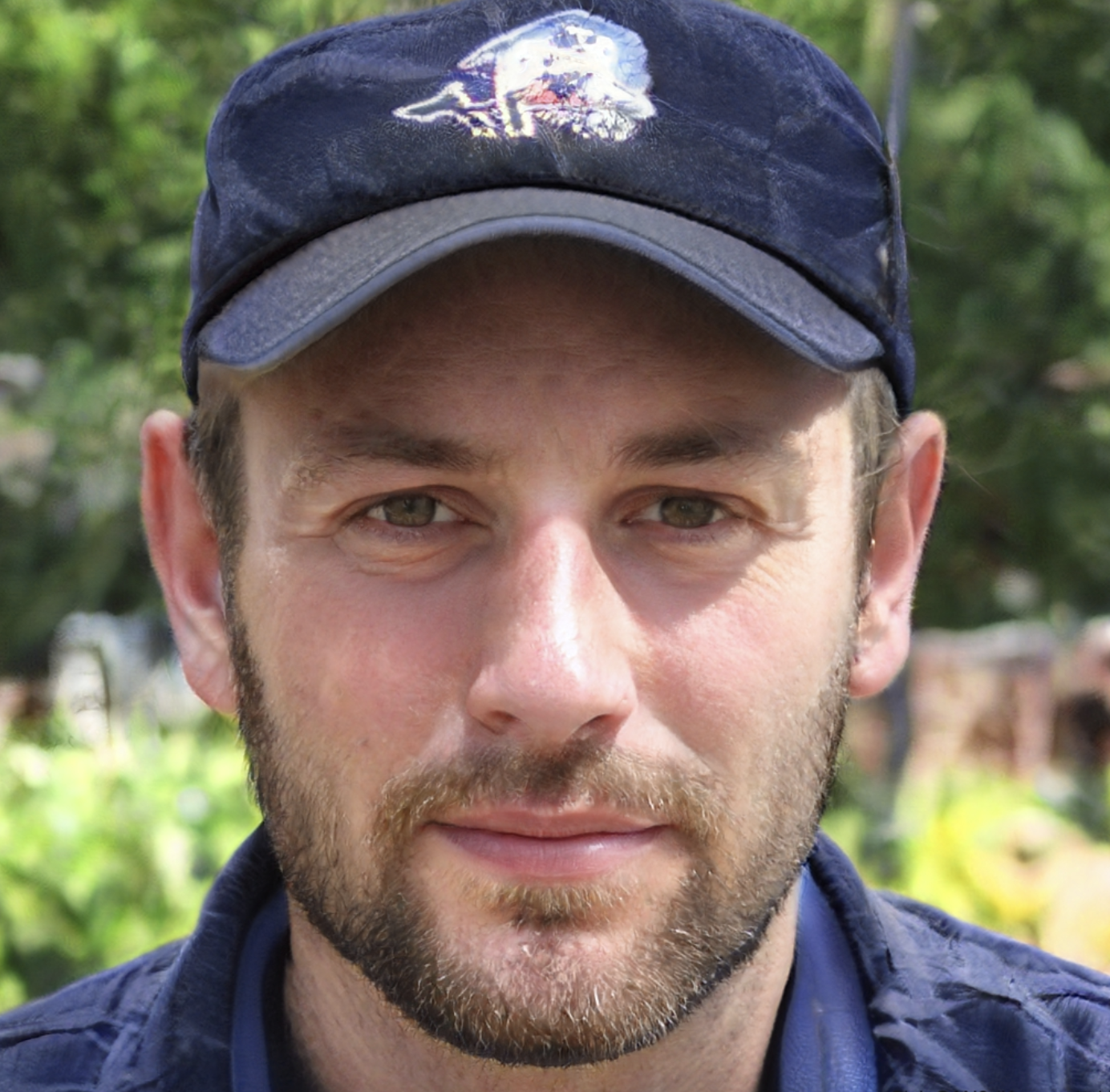
I know that the popular opinion is the Che Guevara was a “revolutionary” but for most Cubans he was a cowardly murderer of innocent Cubans. Other than his quote, I enjoyed your article.
Poner un pensamiento filosófico de la boca de un criminal es burlarse de la verdadera literatura. Ese era el Ché Guevara
Otro pendejo.
[…] Download Image More @ http://www.superprof.com […]